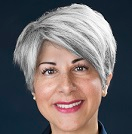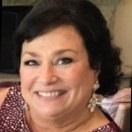ATD Blog
Value-Based Care: Q&A With Tina Barss and Suzanne Mell
Mon Oct 25 2021

The ATD Talent Development and Training in Healthcare Handbook (ATD Press, November 2021) addresses the many opportunities and challenges TD professionals face in the growing and rapidly changing healthcare space. Effective talent development is the thread that weaves through an entire healthcare organization to ensure it is up to standard with the latest practices in treating patients while providing a safe and engaging environment for staff. TD professionals have the unique role of tying together organizational and employee advancement in healthcare systems—and likewise, this handbook dives into areas for both business and professional evolution.
Written by 25 fellow healthcare practitioners with extensive experience in the field—from nurses, physicians, and administrators to instructional designers, chief learning officers, technology experts, and leaders across the industry, it covers six key themes across 26 chapters:
Learning and Development Basics
Organization Development
Employee Development
Business Acumen for the Health System
Digital Transformation and Literacy
Patient-Centric Care
Christina Barss is principal consultant at Allen Interactions and adjunct faculty at New England College, and Suzanne Mell, MSN is director of clinical operations at UC Health Gardner Neuroscience Institute at UC Health. They coauthored a chapter focused on v_alue-based care in ATD Talent Development and Training in Healthcare Handbook._ In this spotlight Q&A, learn more about Barss and Mell and their contribution to the book.
How have your experience(s) in talent development in provider spaces shaped the best practices you shared?

Barss: It is amazing how talent development can positively impact a healthcare system’s viability when they understand value-based care (VBC). The best practices shared were shaped by my experience in talent development and optimization in and out of provider spaces. The most important lesson I learned as a learning and OD (L&OD) professional was garnering that precious airtime with the C-suite. Shifting the L&OD narrative from passive order taker to active problem solver. L&OD is more than e-learning and fun workshops. As healthcare is a human centric industry, it is the L&OD professionals who have the expertise to shepherd healthcare cultures through the dynamic changes of a volatile world.

Mell: My 20-plus years of experience in nursing and clinical development have shaped the best interprofessional practices shared in our ATD Chapter on VBC. I sincerely believe my success as a nurse and clinical leader is attributed to understanding and appreciating how every job in healthcare is important. From the frontline to C-suite, the clinical and non-clinical, how we care for our patients is dependent on how we treat each other. Respect and dignity for our fellow colleagues will help us open our lens to make sure at everyone has a seat at the table. An engaged workforce will positively impact patient safety, quality, and service.
How do you foresee the advancement of talent development in these areas within healthcare? (In an ideal world, how do you see this area flourishing for employee or organization development?)
Barss: The concepts and execution of value-based care has the potential to be overwhelming. However, once L&OD embraces their role and responsibility to positively impact VBC, they will secure a strategic seat at the table. Meaningful metrics is how healthcare communicates. L&OD shifting their metrics to align with successful implementation of VBC solutions is critical. As non-clinical professional what has enabled me to be most successful is demonstrating how the right training/education intervention at the right time to the right people can deliver bottom line results. And now is the right time for L&OD.
Mell: The advancement of value-based care within healthcare is dependent on how organizations are able to make it part of their DNA. VBC is everyone’s responsibility. Whether you are clinical or operational, we stay focused on our patients. L&OD are underplayed in value-based care. For example, our industry has a call to action to problem solve providers quickly dwindling patient face time. Providers are required to spend more and more time EMR documenting to comply with VBC. Every minute spent documenting metrics is subtracting value from patient care. L&OD is poised to intervene in a holistic manner, from problem solving to process improvement to sustaining gains through training and development.
What is something unexpected you learned while working on this book?
Barss: While working on this book, what I found unexpected was how little existed in the literature regarding training and development impact on value-based care. There were anecdotal accounts of micro impacts. However, I was surprised to see healthcare system training and development underrepresented in their impact on value-based care.
Mell: What I was surprised to learn while working on this book was how isolated training and development departments are from clinical operations. I have witnessed how successful organizations can be when L&OD is brought in at the beginning of an initiative and actively involved. To the contrary, I have witnessed when L&OD is only brought in when issues happen, and they have to play catch up. I was also pleasantly surprised how willing and wanting L&OD professionals are to collaborate and co-create learning solutions. Thankful that ATD has published this much needed handbook.
Is there something professional or personal you are proud of accomplishing in the past year?
Barss: Instead of what I am proud, I’d like to focus on what I am grateful for. In the past year, I am grateful for the many friends and colleagues who hold each other up during the dark times of the global pandemic. I am grateful for ATD taking the bold step to support training and development professionals in healthcare. It is a tough job with a high reward. I am grateful for my family, my husband Scott, grandbabies Elle and Waylon, horses Lane and Wilson, Fred the cat, and my dogs Gus, Lizzie, and Sweater Vest Sal.
Mell: In 2020 and 2021 I am proud of how I lead my clinical teams through Covid-19. This season of my career has experienced the most leadership development through non-stop change. This global pandemic was a constant challenge for clinical leaders faced with learning and change management yet day to day we rose the responsibility of ensuring patient access, and employee safety.
What is a fun fact about yourself or one sentence of advice you’d like to share?
Barss: A fun fact about me is that I was part of a Chinese Dance Troupe, and I don’t speak Chinese!
Mell: If you could be anything, be kind.
